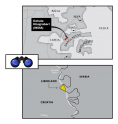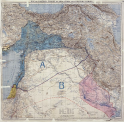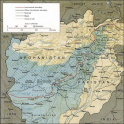No man’s land, one man’s real estate, everyone’s dream?
ideas about separating, purifying, demarcating and punishing transgressions have as their main function to impose system on an inherently untidy experience. It is only by exaggerating the difference between within and without, above and below, male and female, with and against, that a semblance of order is created.
**
The upper image, below, is taken from my recent post on Matrioshka cartography, and waas taken in turn from Say goodbye to the weirdest border dispute in the world in the Washington on August 1st..
… while the lower image is from Welcome to Liberland, the World’s Newest Country (Maybe) in the New York Times Magazine, dated Aug 11
**
Lydia Kiesling, in her post Letter of Recommendation: Uzbek in the NYT magazine today, writes:
National borders can be risibly at odds with reality, especially in Central Asia, where Turks, Mongols, Persians and others roved and mingled, where ‘‘Uzbek’’ was, for a time, more of a descriptive antonym of ‘‘Tajik’’ — nomadic versus settled — than an ethnic classification.
And why not?
They are, after all, distinctions drawn in the mind, lines drawn on paper. Thus the Sykes-Picot map:
Sykes was quite clear about the “lines dorawn on paper” part. He is reported to have said:
I should like to draw a line from the e in Acre to the last k in Kirkuk
The map, in other words, is not the territory: the map is a map.
To take another instance of importance in today’s world, the Durand Line:
Not only is the map not the territory in this case — it can be seen, as one-time Afghan president Hamid Karzai said, as “a line of hatred that raised a wall between the two brothers” — Afghanistan and Pakistan.
**
Sympathies which exist across borders can be potent forces for their dissolution. In a poem titled “Their Eyes Confer Fire” written in the 1980s about Basque country, I wrote
We have
little time,
Marie explained,
for those
who, because
it is hard
to draw
lines
across actual
mountains,
carve up
this earth on
paper.
France, Spain:
we disdain
boundaries, borders,
and border guards.
A canny reader noted that the entire poem could be read not as a description of the Basques as they exist in reality, but as a paean to the corpus callosum joining the two hemispheres of the brain — and thus the two modes of cognition of which I so recently wrote.
**
Page 2 of 3 | Previous page | Next page


